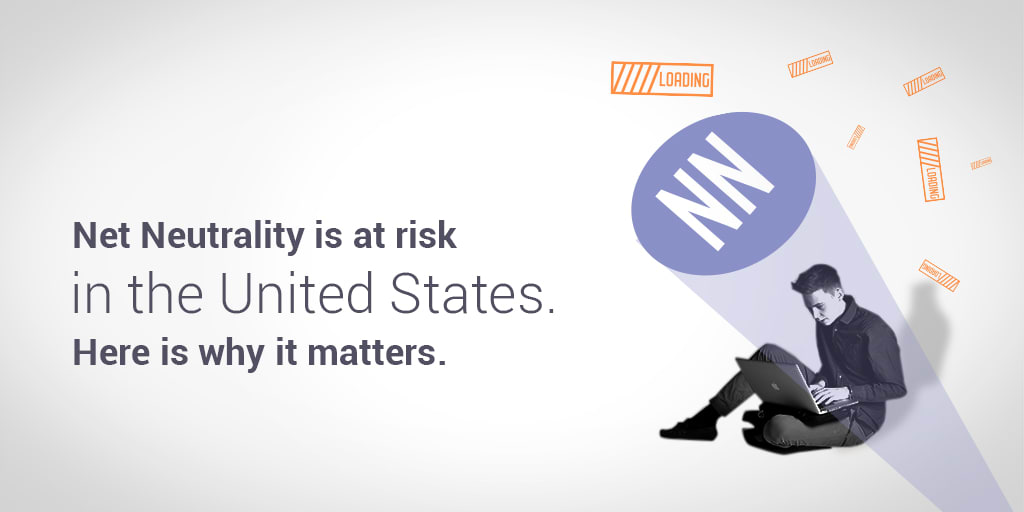Net Neutrality in the United States is about to disappear as the FCC seeks to roll back rules governing ISPs from 2015.
UPDATE June 11th: In December 2017, the FCC voted to approve Ajit Pai’s new order repealing Obama-era net neutrality rules. The order took effect June 11, officially ending net neutrality in the United States. However, many lawmakers, civil rights lawyers, and activists have vowed to continue fighting to preserve net neutrality by other means, including state-level legislation. Read below for background on net neutrality and why we believe it is vital to preserve the equal nature of the Internet.
When you logged into Proton Mail today, you might have noticed a message you’ve never seen before, about something you probably never heard of before, called Net Neutrality. Net Neutrality may not be a household term, but it is something that can potentially impact each and every household.
Internet freedom in the US is facing impending challenges as leadership within the Federal Communications Commission (FCC) looks to reverse net neutrality rules originally set in February 2015. Those rules placed Internet Service Providers (ISPs) under a governing board to ensure they do not differentiate between content served to Internet users.
The newly appointed FCC Chairman and former Associate General Counselor for one of the biggest ISPs in the US – Verizon(new window),(new window) Ajit Pai, is now setting out to overturn these rules in an effort to empower ISPs’ authority on Internet broadband distribution. The legislation would enable ISPs to create “slow lanes” and “fast lanes” and influence content delivery overall.
Potential outcomes include placing parts of the Internet behind a paywall, slowing down some sites or even preventing access to certain sites altogether. Many consider net neutrality equivalent to freedom of speech law in the US (the First Amendment), and for the Internet, dismantling net neutrality can have disastrous effects by decreasing access to information and increasing costs for end users.
We are strong proponents of net neutrality because we view it as essential for ensuring online freedom. Equal access to the internet is one of the main drivers of innovation and it is the core of what makes the internet such an outstanding environment.
The introduction of “slow” and “fast” lanes would make it almost impossible for start-ups to compete. It could likely lead to an environment where the service that wins is not the best one, but the one with the ability to pay for ISP “fast lanes”. No matter how you try to spin this, this can only impede innovation.
Potentially even more concerning are the problems created by allowing ISPs to influence what information and content customers can consume. This could lead to a situation where instead of being able to get news from all websites, information is limited to just sites that are able to pay the most to ISPs. For democracy to thrive, information must flow freely, and without net neutrality, this core principle is compromised.
We built Proton VPN (new window)to partially address this problem. Just like Proton Mail, Proton VPN is built with privacy in its architecture and is designed to make it impossible for your ISP to track what sites you are visiting, or restrict access to certain sites. However, we shouldn’t be in a world where a VPN service is required to access the full Internet.
What can you do about it?
Today, over hundreds of tech companies worldwide are coming together to prevent this unwanted scenario from unfolding. Other companies participating in the Internet Day of Action with us include Amazon, Netflix, Reddit, Twitter, Spotify, Github, and many others. If you are an American citizen, you can express your disapproval to the FCC and your elected representatives through the official protest website at Battle For the Net(new window).
You can get a free secure email account from Proton Mail here.
You can also learn more about Proton VPN and obtain an account here(new window).














